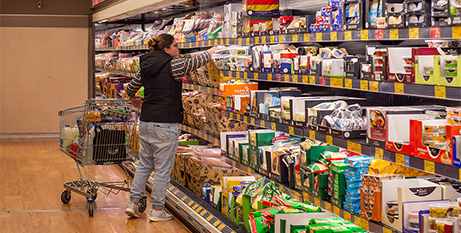
One in three Australian households went whole days without eating or compromised on meal choices in the past 12 months, according to a report released this week. Source: SBS News.
Data from food relief charity Foodbank suggests that food insecurity has worsened when compared to 2024, leaving 3.5 million families facing hardship that “is not getting better”.
Foodbank Australia CEO Kylea Tink said that the “reality for families” is worsening, despite targeted government assistance such as one-off energy rebates.
“Families are skipping meals, or they’re only feeding certain members of the family at certain meals, or in the worst-case scenario, they’re going whole days without eating at all,” she said.
“The real concern for us here is that with this data cumulatively now what we’re seeing is this is a systemic endemic issue that is not getting better, and it’s why we’re really calling on the federal Government to come to the table and work with us to help fix it.”
One of the most likely groups to experience food insecurity is renters, according to the report, with one in two renting households affected in the past year.
Emeritus professor Amanda Lee from the University of Queensland’s School of Public Health said poor nutrition has detrimental health outcomes.
She said that junk food is typically more affordable than groceries, leaving financially stressed households to buy more processed and unhealthy food.
Professor Lee said that lower socio-economic households and single-parent households tend to experience some of the poorest health outcomes.
The report from Foodbank also identified other groups that are vulnerable to food insecurity.
It found 67 per cent of households that include someone living with a disability or health issue experienced food insecurity in the past 12 months.
Meanwhile, 68 per cent of single-parent households are now food insecure. Overall, one in five households earning $91,000 or more experiences food insecurity.
At the same time, an estimated 7.6 million tonnes of food is wasted each year, according to Foodbank, costing the economy over $36.6 billion annually.
FULL STORY
The ‘insidious problem’ leaving Australians like Jessica ‘lucky’ to eat twice a day (By Cameron Carr, SBS News)






